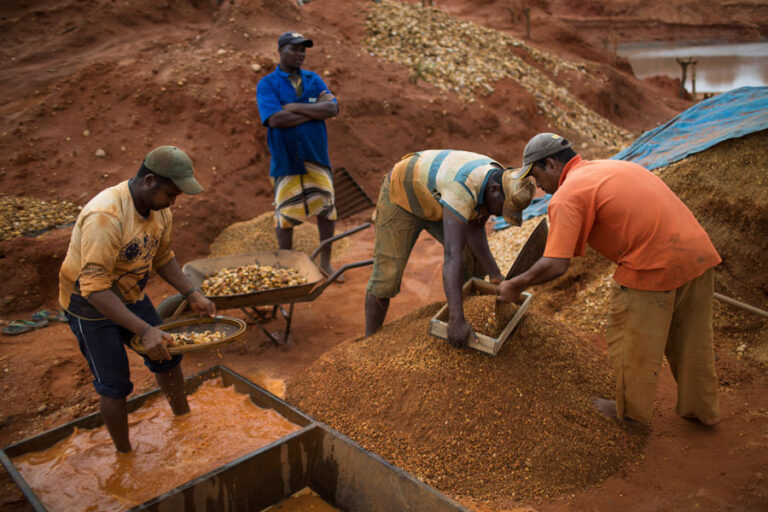Alright — here’s a clear overview for you:
Sources of Mineral Resources in Angola
Angola is one of Africa’s richest countries in minerals, thanks to its diverse geology. The main sources are:
Oil and Gas
- Source: Offshore fields (deepwater and ultra-deepwater in the Atlantic Ocean), especially around Cabinda province and the Congo Basin.
- Details: Angola is Africa’s second-largest oil producer (after Nigeria).
- Key Companies: Sonangol (national company), TotalEnergies, Chevron, BP.
Diamonds
- Source:
- Lunda Norte and Lunda Sul provinces (famous for alluvial and kimberlite diamonds).
- Catoca Mine (4th largest diamond mine in the world).
- Details: Angola is one of the world’s top diamond producers.
Iron Ore
- Source:
- Cassinga (Huíla province) — the historic site for iron mining.
- Details: Once a major export in the 1970s; efforts are ongoing to revive production.
Gold
- Source:
- Huíla, Cabinda, and Moxico provinces.
- Details: Still relatively small-scale, but exploration is growing.
Phosphates
- Source:
- Cabinda province (e.g., Cácata deposit).
- Details: Used for fertilizers; part of Angola’s push to diversify agriculture.
Copper and Cobalt
- Source:
- Moxico province, near the border with Zambia and the DRC.
- Details: Same mineral belt as Congo’s Copperbelt — very rich area!
Other Minerals
- Manganese:
- Found in Malanje and Kwanza Norte provinces.
- Gypsum, Marble, Granite, and Quartz:
- Scattered across the country (notably in Namibe province for ornamental stones).
Summary
- Top 3 exports: Oil, diamonds, and some mineral ores.
- Angola’s mineral wealth is concentrated in the north, east, and offshore regions.



